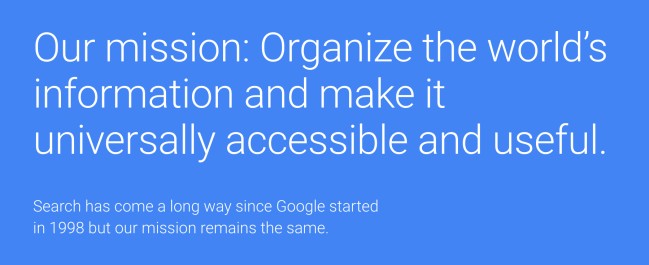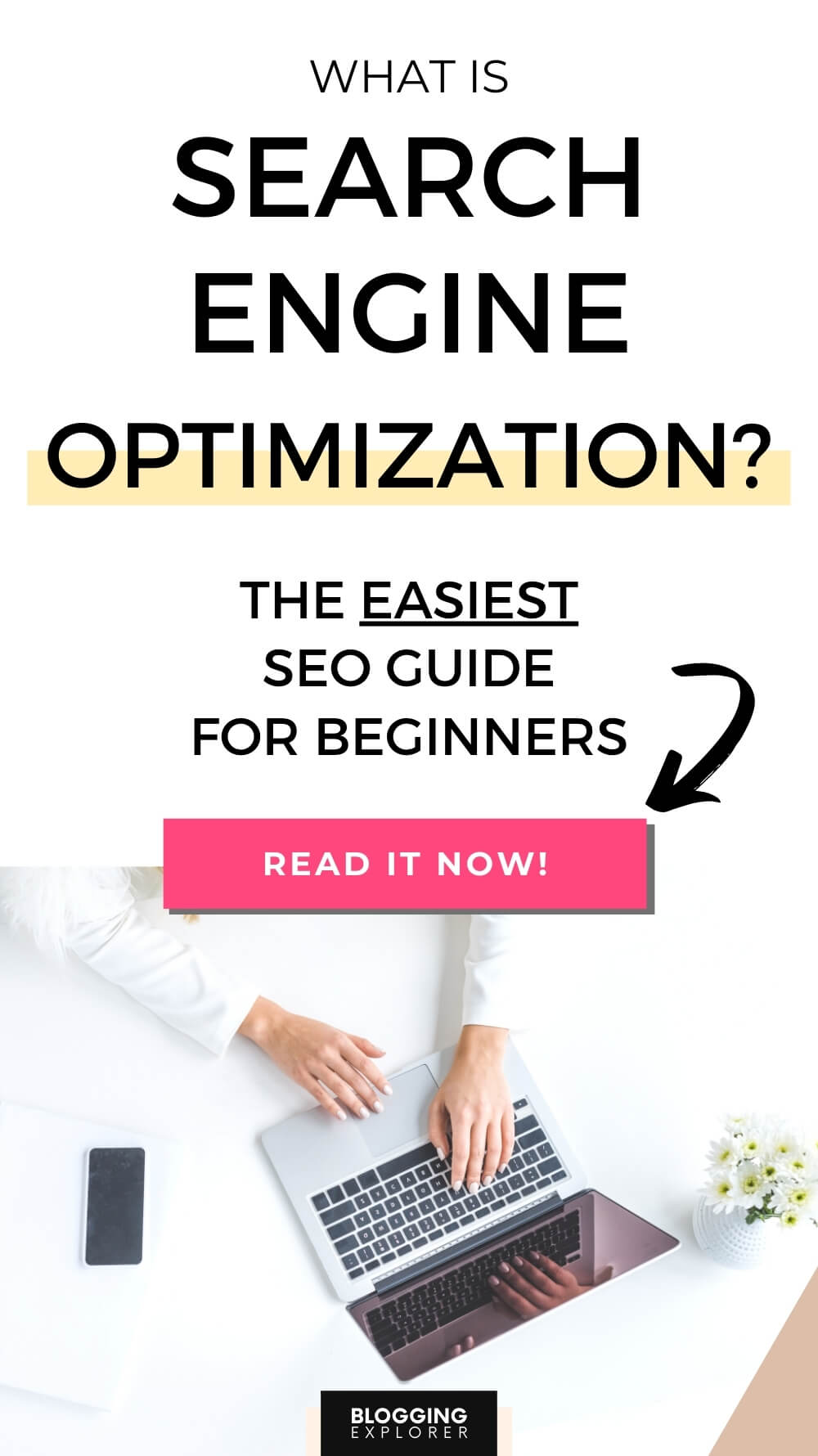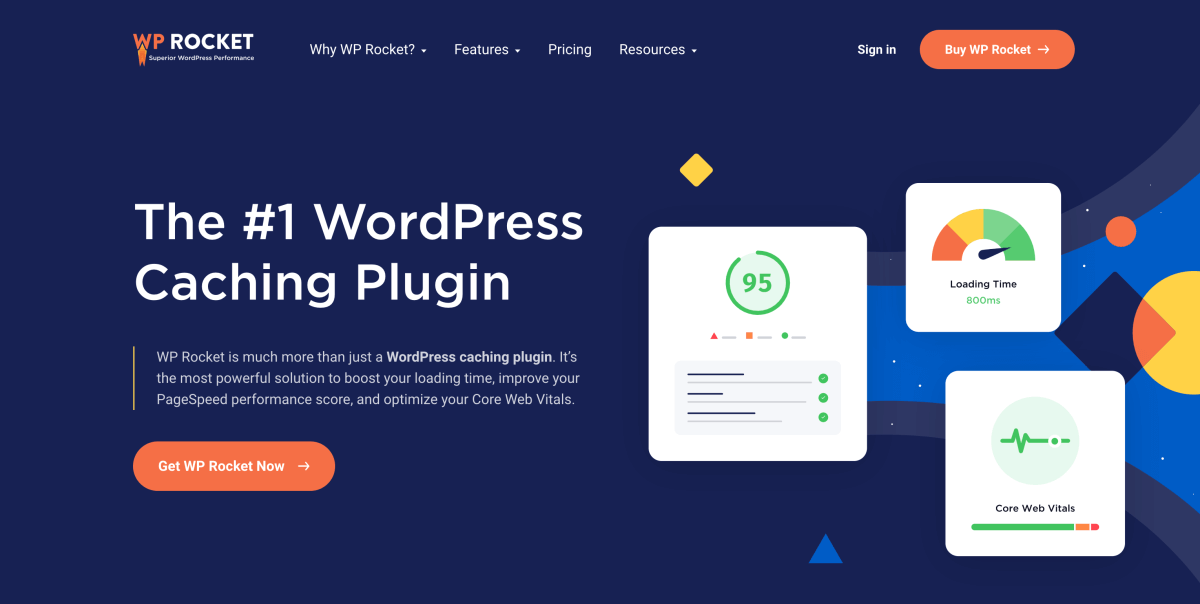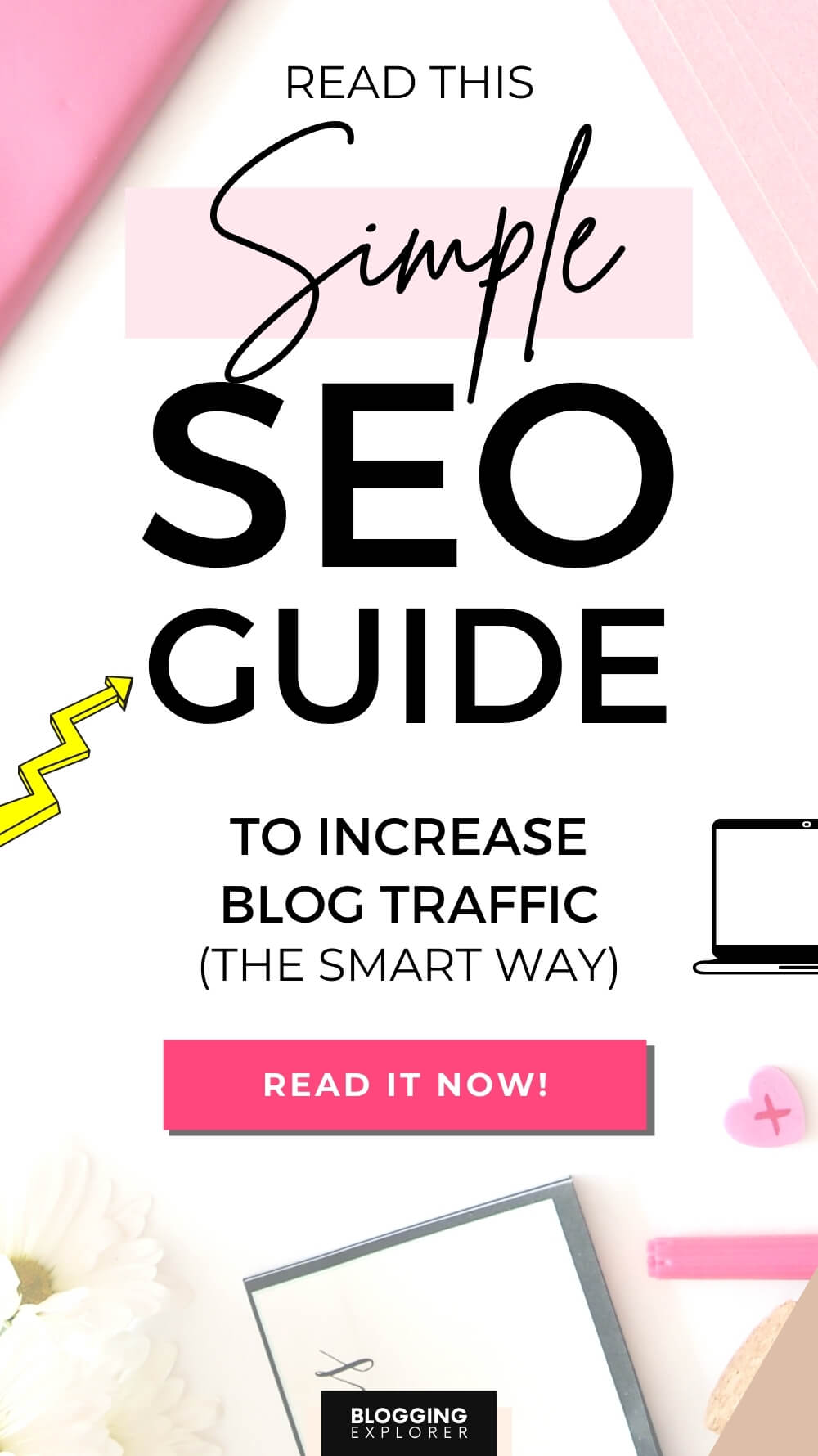What if I told you I knew the key to becoming a successful blogger? What about if I told you I’d like to share that key with you? Would you be interested in reading on?
That key is called SEO, or Search Engine Optimization. I know, sounds scary, right? If you’re new to blogging, you’ve most likely seen enough cryptic acronyms already.
But listen up:
If there’s only one acronym you want to understand and master, it’s SEO.
In this post, I’ll walk you through what is search engine optimization, how SEO works, and why it’s so important to you as a blogger. I’ll also show you a few proven SEO tips for bloggers you can use right away to grow your website traffic faster.
I know there are tons of SEO tutorials out there. But they are often too advanced for beginner bloggers.
This article is different. You will walk away with a basic understanding of how SEO works and a few easy but powerful SEO tips for beginners.
If you’re just getting started with blogging and you have no clue about how SEO works, tag along!
Here are a few related posts you may want to read, too:
- 7 Blog Traffic Tools For Growing Your Blog Quickly
- How to Start an Email List Fast: 7 Easy Steps for New Bloggers
- Blogging 101: How to Write a Blog Post in WordPress
- What is Search Engine Optimization (SEO)?
- Why are search engines important for your blog?
- What does SEO stand for?
- How does Google work?
- What does Google do with your blog exactly?
- Easy SEO techniques and Search Engine Optimization tips for bloggers
- Final thoughts: What is Search Engine Optimisation (SEO)?
Please note: This post contains affiliate links to products I use, trust, and recommend. If you choose to purchase a helpful product using these links, I may receive a small commission for referring you – at no extra cost to you. These funds help me keep this blog up and running.
What is Search Engine Optimization (SEO)?
What is search engine optimization and how does SEO work exactly? Where should you start if you want to understand how SEO works?
When I build websites or blogs for my clients, they usually don’t have any idea about what SEO is. The question I hear every time is:
“What is search engine optimization good for?”
So, I start at the very basics: I explain the importance of search engines first.
Why are search engines important for your blog?
For most people, Google represents pretty much all search engines.
Of course, there are plenty of others out there, but Google has a whopping market share of 83% worldwide. So, it’s no wonder most bloggers focus only on Google SEO.
With so many people using Google, it’s obvious you want to achieve a high position in its search results.
The more people see your website in the search results, the more clicks and blog traffic you can get. Thus, improving your Google rankings means your will have better chances of making money with your blog.
The best part?
Organic traffic from Google is 100% free.
What does SEO stand for?
Once you grasp the massive traffic potential through search engines, you feel more motivated to learn what SEO is all about, right?
At least that’s how my clients feel. Every time. They see the incredible traffic (and turnover) potential SEO represents.
But what does SEO stand for?
In short: SEO stands for Search Engine Optimization.
That means using different optimization tactics to achieve a higher position in search results for a given keyword.
Obviously, the first links in the search results get the most clicks. So your goal is to be at least in the top five. Otherwise, you could end up getting barely any traffic for that specific keyword.
I’m sure you know there are heaps of different ways to improve search engine rankings. Depending on who you ask, you’ll hear different answers to SEO best practices and SEO tips for bloggers.
If you’re new to blogging and SEO, things can quickly feel overwhelming and technical.
To make things easier for you, let me walk you through how Google works before we dive into more practical SEO tips.
How does Google work?
Don’t be scared! I know it can feel confusing to try to understand how Google works exactly. But don’t worry, we’ll just look at a couple of fundamental ideas here.
You see, in order to know how you can achieve your SEO goals, you MUST understand what Google wants.
Luckily, Google is friendly enough to share with us their exact mission. Google wants to:
“Organize the world’s information and make it universally accessible and useful.”

In other words, all Google wants to do is to:
- Gather all the information available online and
- Deliver users the most useful, valuable content for each search query.
What does this mean for you as a blogger?
Your SEO goal is to be the best possible search result for your potential readers. “The best” meaning the most valuable, helpful, and useful.
But with thousands of blogs and websites out there, how does Google know which ones are the best? Let’s have a look…
What does Google do with your blog exactly?
Google works like a giant index of information. When you start a blog and Google discovers your content, your blog articles become part of that index.
Of course, the exact dynamics of building and maintaining that index are strictly confidential.
But to help you understand the basics of what happens to your blog, here’s what every search engine does:
- Search and find new content on websites
- Organize information into a directory
- Rank web pages using different ranking signals
Let’s take a closer look at these three points:
1: Find new content (Crawling)
First of all, Google needs to know what your blog is about. To do this, they send robots to read your blog to see what kind of content and information you offer.
These bots or “crawlers” are snooping around the WWW all the time to find and “read” new websites and blogs.
When they find your blog, they simply analyze its contents and send the information back to Google’s servers.
2: Organize Information (Indexing)
Once your blog has been crawled by a robot, Google organizes the contents of your blog into their gigantic index of websites. That’s where you’ll find all the websites and blogs Google knows about.
Needless to say, this index is not just any index. According to Google, it contains over 130 trillion individual web pages.
To put things into perspective, think about a phone book, for example. That’s an index, too, right?
If you put the entire Google index into a single phone book, how thick do you think it would be?
50,000 miles thick! That’s twice around the globe.
Just think about having to look for a phone number in a book like that. Yet, somehow Google always seems to know what websites to show you when you use their search. It’s magic!
So, how do they do that? Let’s take a look:
3: Rank web pages (Ranking)
Ok, so this final step is where the magic happens.
As we discussed above, Google wants to deliver the best search results for any given search query.
The exact recipe for how Google ranks web pages is top secret, of course. No one knows exactly how to get those coveted top spots in their search results.
Even though Google uses hundreds of factors to find the best content for their users, there are a few you should focus on:
- Content quality:
Make sure your blog posts are useful and helpful to your readers. Understand what your target audience wants from you and then deliver the best possible content to match those needs. - Page speed:
Don’t keep your readers waiting! The longer your blog pages load, the more visitors will grow impatient and leave your blog. Improve your WordPress blog performance by using a reliable blog hosting provider and avoid cluttering your blog with unnecessarily large files that could slow it down. Also, a powerful WordPress caching plugin will work wonders on your page speed. - Incoming links:
If heaps of quality websites link to your blog, Google thinks your content is more valuable. Network with other authority bloggers in your niche and write guest posts for them with a link back to your blog.
In short, every ranking factor has the same goal: Google wants to deliver the best possible result to every user.

Easy SEO techniques and Search Engine Optimization tips for bloggers
By now, you know a few things about what is search engine optimization and how Google works.
Next, you can start learning more practical SEO tactics and SEO tips for bloggers.
At this point, my website clients usually ask more questions, like:
- What is search engine optimization like in practice?
- How can I optimize my website content to make sure I rank well on Google?
- What is search engine optimization going to cost?
First of all, basic SEO tactics are 100% free. You don’t have to spend a dime on the SEO tips I’m sharing here.
As for what search engine optimization is like in practice, I tend to share these three SEO techniques and SEO tips with my blog clients:
Tip 1: Improve your content quality
The very first thing you must do is check your content.
Make sure your blog posts are genuinely useful and helpful to your readers.
Keep in mind that Google knows how long your readers stay on your blog.
If your readers tend to leave your blog quickly, something’s not right. It’s a signal that they didn’t find what they were looking for, and your content doesn’t deserve a top spot in the search results.
The best way to make sure your visitors stay on your blog is to answer a very specific question in each blog post you write.
As long as your article covers all relevant information about it, your readers won’t feel like they need to go back to the search results and read another article on the subject.
If you want more help with writing, use these instant tips to write an amazing blog article every time.
Tip 2: Increase your page speed
Nobody likes slow websites!
Just think about yourself here:
What do you do when you visit a website and it keeps loading forever?
You leave the page, right?
So, when you start a blog, make sure your pages load quickly.
I’ve written a full guide on how to improve your website performance. Check it out now.
The easiest way to speed up your website is to choose the right blog hosting provider.
If you’re on a budget and not sure where to host your blog, use Bluehost. I use them for my blogs and they load at lightning speed.

If you haven’t launched your blog yet, head over to my step-by-step Bluehost WordPress tutorial to start a blog like a pro in just 30 minutes.
Furthermore, you can speed up your website by using WordPress caching plugins. These nifty plugins store your pages and posts in a more compact package that loads faster in your visitors web browser.
I use the WP Rocket caching plugin. It’s the easiest caching plugin to set up – even if you have no experience just yet – and it really works.

To find out how I managed to speed up my WordPress site by 72%, read my full WP Rocket review.
Tip 3: Build a user-friendly blog
In addition to page speed, you also want to make sure your blog is easy to use.
This may sound self-explanatory, but most bloggers seem to struggle with this point. They design a blog that they like, but they forget about their visitors.
And hey, that’s perfectly normal! When you start a blog from scratch, you have enough on your plate.
But achieving a user-friendly design doesn’t have to be difficult. In fact, it’s one of the easiest ways to stand out.
At the end of the day, it doesn’t matter how you want your website to look. If your visitors don’t like what they see, they won’t stick around.
With that said, here are a few simple guidelines for creating and designing a user-friendly blog:
- Make your navigation elements and menus intuitive to use
- Create a clean and clear page structure
- Link to relevant pages often to help visitors find helpful resources quickly
Focusing on a pleasant, smooth user experience will help your readers find what they are looking for.
To help your blog stand out from your competitors, all you need is this incredibly helpful user experience book. It’s helped me and my clients save hundreds of hours of work by following a few simple but powerful website design principles.
Also, make sure you use a professional WordPress theme for your blog. I use the free Hello Theme together with the popular Elementor page builder plugin for my website projects. This combo is super powerful and easy to use.

Tip 4: Increase your blog security
Finally, you need to make sure your blog is secure – both for you and your readers.
Trust me, the last thing you want is to wake up one morning and find out your blog has been hacked.
You see, Google hates hacked blogs. If they see that your blog has been hacked into, they will remove you from their index. And trust me, getting back there is everything but easy.
When you start a blog, keep these three points in mind:
Choose a trustworthy blog hosting provider:
Not every blog hosting provider is equal. Use a known provider you can trust (and Google will trust them, too) like Bluehost.
Encrypt your blog with an SSL certificate:
Again, I suggest you go with Bluehost. They give you a free SSL certificate to protect you and your readers.
Harden your blog with a security plugin:
Although WordPress is safe to use in general, it does have a few weak spots. If you don’t harden your website, it could get attacked by hackers and you could lose your content.
The easiest way to make hackers’ work more difficult is to use a security plugin like Wordfence. It’s a free firewall and malware scan plugin that’s super easy to set up. I use Wordfence for all my WordPress websites and it’s worked like a dream.

However, even if you use a security plugin, don’t forget to back up your blog website! Speaking of backups…
Backup your work regularly:
When you start a WordPress blog, make sure you backup your blog contents regularly. It’s easier than you think, trust me! There are a few good backup plugins you can choose from. I use the free UpdraftPlus plugin.

Final thoughts: What is Search Engine Optimisation (SEO)?
I hope you’re still with me! How are you feeling? Leave me a comment below if you have any questions!
I know the world of SEO can feel overwhelming and scary. It’s a lot to take in if you’re new to blogging.
But I wrote this guide to help you get started with the basics step-by-step. Just go through one point at a time and you’ll get the hang of it quicker than you think.
Keep in mind that you can achieve incredible results with even a few key SEO tactics.
You don’t have to understand everything about search engines. As with many other technical topics, knowing 20% of SEO tactics will get you 80% of the potential results.
You’ll need some time to know how to optimize your blog for search engines, but you’ll get there, I promise.
If you haven’t already, make sure you subscribe to my mailing list for more helpful SEO tips and articles!
Here are a couple of related articles you may want to read:
- What to Blog About? How To Find Blog Post Topics That Generate Traffic
- How To Start a Successful Blog? 6 Essential Steps For Blogging Beginners
If you found this post on what is search engine optimization helpful, drop me a line in the comments below!




